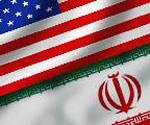 Columbia Tribune: Nuclear talks between Iran and the six world powers are in the homestretch as the two sides agreed to an extension of the so-far-fruitless talks for another four months. While U.S. policy in the talks has been directed by the White House, many in Congress, along with independent critics, remain concerned about a deal that might give Iran a long leash.
Columbia Tribune: Nuclear talks between Iran and the six world powers are in the homestretch as the two sides agreed to an extension of the so-far-fruitless talks for another four months. While U.S. policy in the talks has been directed by the White House, many in Congress, along with independent critics, remain concerned about a deal that might give Iran a long leash.
Columbia Daily Tribune
By Kasra Nejat
 Nuclear talks between Iran and the six world powers are in the homestretch as the two sides agreed to an extension of the so-far-fruitless talks for another four months. While U.S. policy in the talks has been directed by the White House, many in Congress, along with independent critics, remain concerned about a deal that might give Iran a long leash not just with respect to its nuclear program but also its human rights violations and threatening regional aspirations.
Nuclear talks between Iran and the six world powers are in the homestretch as the two sides agreed to an extension of the so-far-fruitless talks for another four months. While U.S. policy in the talks has been directed by the White House, many in Congress, along with independent critics, remain concerned about a deal that might give Iran a long leash not just with respect to its nuclear program but also its human rights violations and threatening regional aspirations.
Missouri’s Sen. Roy Blunt is among the current policy’s many critics. Some of them want to see more effective measures to curb the Iranian regime’s threat, while others are more unapologetic and advocate democratic change in Iran. The latter emphasize the regime has no future because of its strategic inability to meet the Iranian people’s demands. They point to strong and organized opposition movements capable of organizing protests, like the uprisings of 2009, which would uproot the current system in favor of establishing a secular democracy.
A month ago, Iranian opposition activists numbering in the tens of thousands, including a large delegation from Missouri, gathered near Paris and were joined by high-ranking former and current officials from 69 countries to demand democratic change in Iran.
The geographic reach of the Paris rally underlined the extent of political commitment of people who have been driven out of Iran in the wake of its takeover by religious extremists. The Iranian people’s desire for liberation is strong and consistent. They have been suffering under the thumb of a regime that holds thousands of political prisoners, carries out more executions than every nation except China and bars its citizens from criticizing the government or even expressing themselves freely.
Such brutality is a clear sign that the mullahs are more vulnerable than ever, with their repressive energies divided among attempts to repress the political will of an increasingly enraged populace at home, to support the hopelessly embattled Bashar Assad and Nouri al-Maliki regimes in Syria and Iraq, and to manage the delicate process of obtaining a nuclear weapon through deception and doublespeak.
Moreover, they have also pressured Maliki to attack defenseless Iranian dissidents in Iraq whom the U.S. promised to protect. At a Senate briefing last month, Sen. Blunt referred to a letter he and colleagues Carl Levin, D-Mich., John McCain, R-Ariz., and Jeanne Shaheen, D-N.H., had recently sent to Secretary of State John Kerry to “press for the protection of Camp Liberty and to expedite the resettlement of the Camp Residents to countries outside Iraq, including the United States.”
He also said, “We made a commitment. And in a democracy, in a world where people need to rely on what you say you’re going to do, it is unbelievably important to do what you say you’re going to do.”
These realities are at the heart of some of the criticism of the current U.S. policy toward nuclear talks and engaging the theocracy. In its quest for politically expedient deals, fundamental issues of human rights abuses and democracy have been ignored by the White House. To allow Iran to proceed with its nuclear program at a time when the rate of political executions has actually increased is to lend legitimacy to those abuses and allow them to continue virtually unchecked. Since the “moderate” Rouhani began his presidency last year, the number of executions in Iran has spiked dramatically, to nearly 900.
The administration’s excessive leniency on the nuclear issue and overlooking of the regime’s human rights abuses and belligerent policies in the region — including Iraq — have actually emboldened the extremist mullahs.
It cannot be overemphasized that the situation facing the Obama administration at the negotiating table is a choice between actively propping up a repressive theocratic regime or allowing it to collapse under its own weight. The right choice seems obvious, and yet that is not the goal Obama has pursued so far. It might be that the White House simply does not understand the situation — the unpopularity of the Iranian regime, the strength of the opposition, the extent of the threat posed by a nuclear Iran or the extent of Iran’s dependence on terrorism.
If the president does not have a grasp of these realities, plenty of current and former policymakers from his own country and many others around the world would be more than willing to clarify the situation. The fate of U.S. interests in the region depends on it.
St. Louis resident Kasra Nejat is president of the Iranian-American Cultural Association of Missouri and a member of the Organization of Iranian-American Communities in the U.S. (OIAC).


